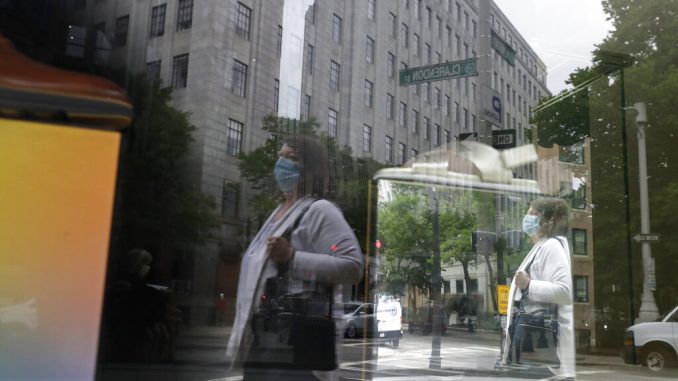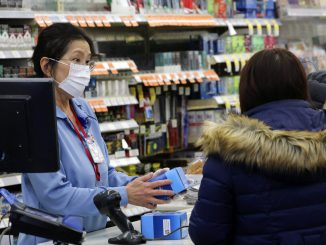
The number of coronavirus cases are still on the rise in North Carolina. In parallel, the economy is in free fall. The state unemployment rate has more than tripled since February, and 1 million people have filed for unemployment benefits. Fortunately, it’s possible to balance kick-starting the Tar Heel State economy while protecting our most vulnerable residents.
Gov. Cooper needs to get on board. Although parts of the state economy have started to reopen, the governor continues to veto legislation that would relax restrictions further. Restaurants remain forced to operate at limited capacity, and health clubs, as well as similar businesses, remain closed. The governor’s ultra-cautious approach has likely cost North Carolina nearly $200 million from the now-cancelled RNC convention.
Despite what some doomsday predictions claim, a return to normalcy can be done safely.
Public health officials and the doctors who have dealt with coronavirus patients have learned a lot since the start of the pandemic — notably, who is most susceptible to the virus. More than 80% of coronavirus-related deaths are people over the age of 65, and 42% of fatalities occur in nursing homes or alternative assisted living communities. Additionally, less than one-in-10 deaths list the coronavirus as the sole cause; the rest involve a pre-existing condition that inflamed the effects.
The fatality rate when including the entire population? Just 0.4 percent. For Americans who are 34 years old or younger, the death rate is even lower: 0.0005 percent, or one fatality per 2,000 cases.
It seems silly to keep the state economy running on low power mode when it’s evident which group of people needs to be protected; everyone else, which accounts for the vast majority of North Carolinians, should be able to get back to work and return to a near-normal life.
At-risk groups — including older people and those with pre-existing conditions — should continue to take more precautions and limit human contact. Visitation and isolation policies should remain in place at nursing homes and other establishments where vulnerable populations live or frequent. Younger, healthier people can do their part by following common sense, facile health practices.
Frequent hand washing, being cognizant of crowds and staying home if symptoms reveal themselves are among recommended protocols. New reports indicate that asymptomatic spreading of the virus — which was initially a major fear — is rarer than previously thought. It’s easier to limit the spread when it’s obvious who is potentially infected. Optimizing your immune system with a good diet, exercise and enough sleep will also help your body fight the virus, or the common cold for that matter!
The name of the game is to isolate the few to protect the many; not the other way around.
As part of a bipartisan group of 70 experts — which included doctors, academics, economists, scientists and business specialists — we outlined this sentiment in a letter to President Trump in May. Among other recommendations, we recommended that a professional statistician be added to the President’s Coronavirus Team, that more emphasis be placed on accurate record keeping, and for a much stronger focus on effective therapeutics. When adopted together, these recommendations can help our state and the entire country get back on track.
North Carolinians don’t face a binary choice between economic recovery and protecting the state’s most at-risk population. We can have the best of both worlds. Gov. Cooper should take note.
Dr. John Droz is a physicist residing in North Carolina and is a partner of the Job Creators Network Foundation.



